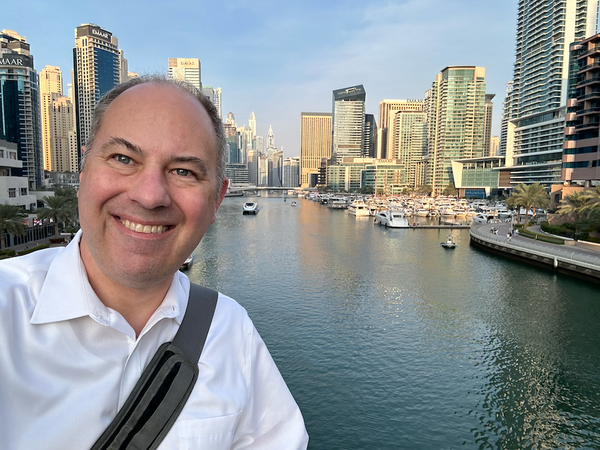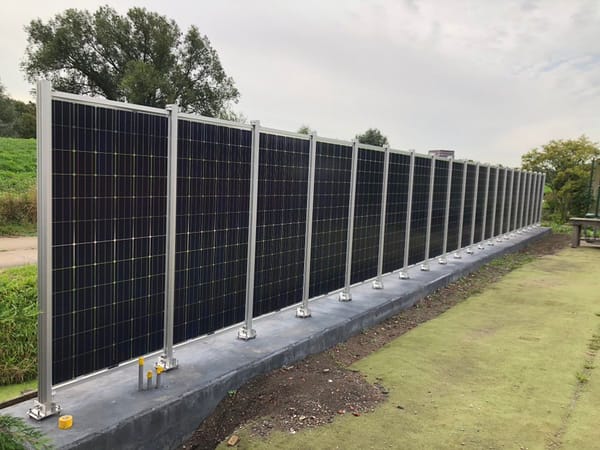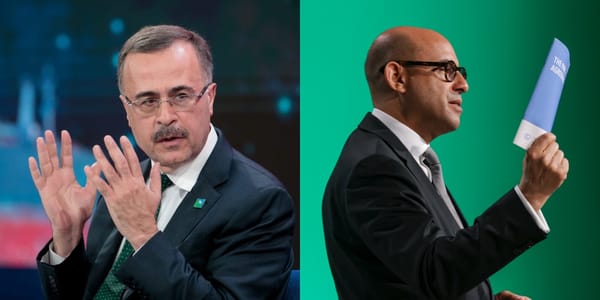Report from Dubai: King Charles gets technical
Good Evening from Dubai,
Today was the beginning of speeches from various national leaders, and many leaders also camped out in their national pavilions, shaking hands and giving self-aggrandizing speeches to captive audiences. It’s the heady beginning to COP, which only begins to really wear down after leaders leave Sunday morning. I’ve got a report on what was said – and not said today.
One more thing, your recommendations are how I grow this newsletter! Please forward this email to someone you think that might appreciate my reporting.
-Mike
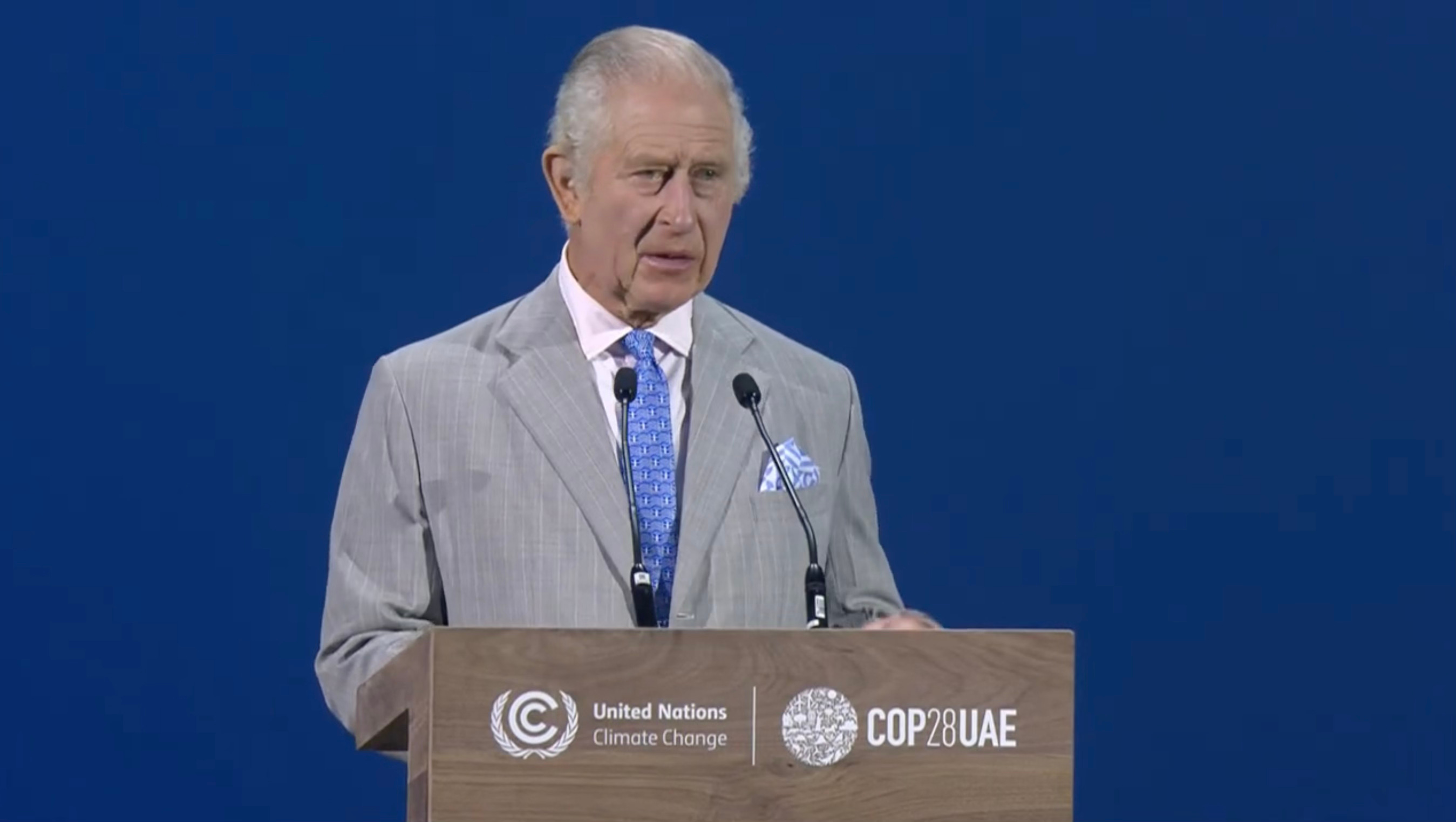
What happened today
After a quiet first day, the conference was turned upside down by the flood of world leaders arriving for the World Climate Action Summit and the beginning of National Statements. Only national leaders and their staff were allowed in the plenary session areas, so we had to scramble around the blocked off area of the expo area. And among press, only video press with pre-arranged positions could view the statements. So, the lowly writers, like me, were forced to observe the live stream from the massive press room.
The speeches today were attended by a glittery group of leaders, including French President Emmanuel Macron, Al Gore, Tony Blair, Turkish Prime Minister Recep Erdogan, and dozens of other world leaders – but missing were leaders from the two biggest emitters: President Joe Biden and General Secretary Xi Jinping.
King Charles III kicked off the speeches this morning with an address seemly aimed at the negotiators filled with relatively technical thoughts on the process of negotiations and climate change solutions. A sample? “Combined with the innovative use of risk reduction tools like first-loss risk guarantees we could mobilize the trillions of dollars we need in the order of four and a half to five trillion a year.”
Brazilian President Luiz Inácio Lula da Silva, who will host COP30 in 2025, and Indian Prime Minister Narendra Modi later delivered their own addresses, but they were largely self-serving, with no new proposals – although Modi made news by proposing India host COP33 in 2028.
Meanwhile, Politico reported that the push to set a fossil fuel phase-out date is in trouble, as predictably, major polluters and petrostates are against the idea. A report from a U.K. think tank, Carbon Tracker, found that a moderate phase-out of fossil fuels by 2040, would result in a 60% reduction of income, about $8 trillion, for petrostates. The shift would be likely disastrous for the mostly authoritarian countries, essentially equating repairing the climate with fomenting revolt.
The UAE also announced the creation of a $30 billion green energy investment fund, Alterra, which will be chaired by Sultan Al Jaber, the UAE President of COP28. Alterra is meant to focus on Global South countries, which continues to cement UAE’s reputation as a gateway between the Global North and South.
The rest of the day included a steady train of 170 world leaders making their national statements on climate, from Syria to Lesotho. Vice President Kamala Harris will make the U.S. statement tomorrow.
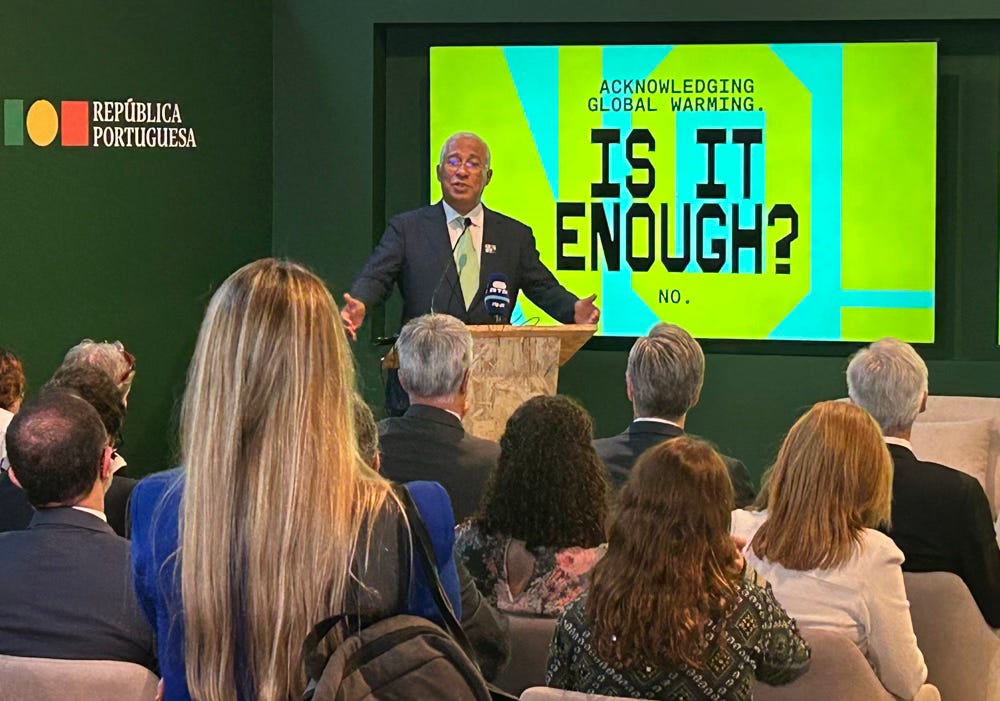
One big issue: Loss and Damage
Yesterday’s biggest news was the official operationalization of the Loss and Damage Fund, a planned for $100 billion annual pile of cash supplied by rich counties that’s supposed to compensate developing countries impacted by climate-fueled natural disasters. Shortly after its creation $400 million of pledges rolled in, including $100 million from German, $100 million from the UAE, and a gob smacking $17.5 million from the United States.
While that amount seems insulting, it’s actually a result of two important factors that impact almost every U.N. climate outcome:
- All U.N. decisions are consensual, and so all 198 countries must agree on any action, including the United States.
- Every U.S. treaty agreement must be ratified by the U.S. Senate which has expressed – even when it was Democratic-controlled – very little interest in climate treaties that mandate American actions or spending.
And as a result, the U.S. Senate’s reluctance to support climate mandates creates an automatic drag on any U.N. climate action. This was the incredible challenge of creating the Loss and Damage Fund.
The concept of the Fund has been rolling around U.N. climate meetings for years, and in fact was not on the original COP27 agenda last year, largely because the Biden Administration had opposed the Fund’s core idea, that the world’s biggest emitters should shoulder financial responsibility for the physical damage done to other countries as a result of their carbon sins. But at the last minute, under tremendous pressure from and an unusual amount of organization by developing countries, the Loss and Damage Fund concept was brought onto the COP27 agenda, and then approved as a basic concept by the full COP (Conference of the Parties).
Over the next year, negotiators from 24 countries met repeatedly to iron out the rules for the Fund, such as who would hold the money, what would the criteria be for receiving funds, who would govern it, who would contribute, and how much they’d have to kick in.
The U.S. insisted on two major items, which gummed up negotiations for months: first, that the fund should be managed by the World Bank, and second, that contributions should be voluntary, and non-governmental organizations (namely foundations) could make contributions as well.
The World Bank bit enraged developing countries, since many had adversarial lending relationships with the bank, and the organization is viewed as a “colonial tool”. The voluntary contribution bit also enraged developing countries, since many of them don’t seem to understand the pure intractability of Senate Republicans, and obviously none of them have heard of Joe Manchin either.
Finally, however, a deal was done by the negotiation group, and delegates arrived to COP28 yesterday with word that language operationalizing the Fund had been submitted to the full COP. Still unresolved: How countries would apply for funding, how much they might get, and what kind of disasters might be eligible. That part has been left to a board, majority controlled by developing countries. And while the expectation remains that the 39 U.N.-designated “developed countries” will be the major funders (this group does not include China and rich petrostates), there has been growing talk from leaders like French President Emmanuel Macron and Kenyan President William Ruto of creating a global tax – perhaps on aviation fuel – that would go directly to the Loss and Damage Fund, creating a perpetual source of financing insulated from the peccadillos of the U.S. Senate.
So, in a way, the fact that President Joe Biden committed $17.5 million to the Loss and Damage Fund, is something of a miracle.
Now, the pressure is on other countries to make their own annual contribution commitments. In particular, developing countries will be pressuring China and Gulf petrostates to make contributions, a significant request, since they are not considered an official U.N. “developed country”.
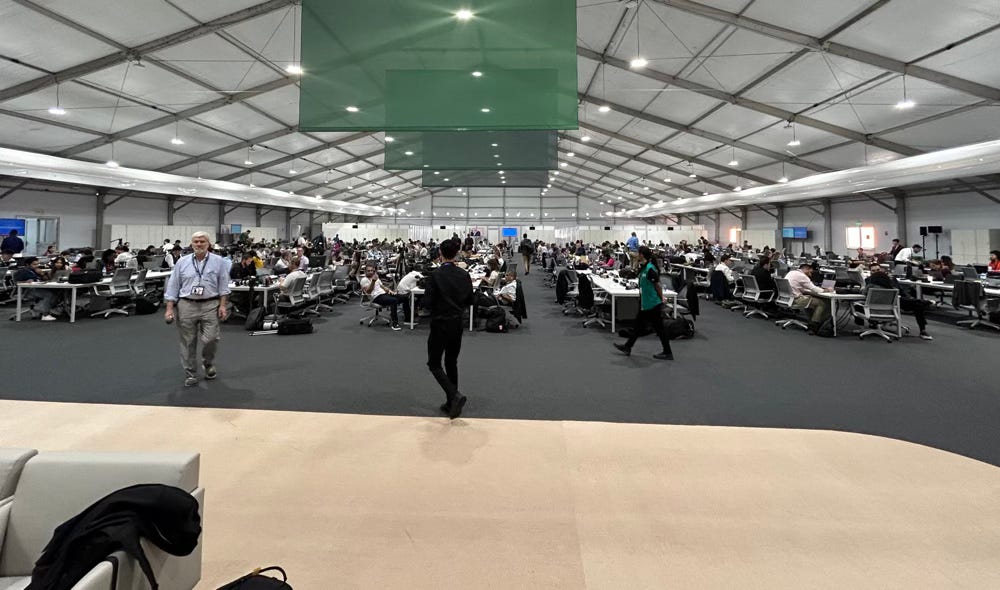
What I did today
As I mentioned above, lowly written press people like me were not allowed into auditorium to see the big leader speeches, so I spent a good chunk of the morning and early afternoon camped out in the press room. Later this afternoon, I toured some of the pavilions, to see what they’re up to and catch a few interviews with national delegations. I didn’t record 14k steps like I did yesterday, but I easily passed 10k, and that included a lot of sitting around.
Tonight, I’m heading to the mall to grab some comfortable shoes and see if I can squeeze in a visit to Ski Dubai. I’ll report on what I saw at the world’s first indoor ski hill tomorrow.


